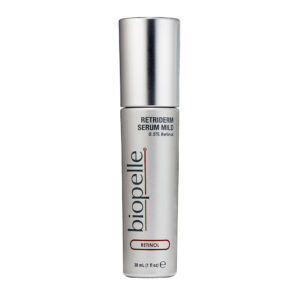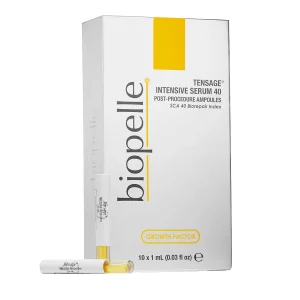Air pollutants are everywhere — indoors, outdoors and in rural and urban environments. Though air pollution likely conjures images of smoggy cities or a billowing smokestack in an industrial area, indoor environments contain a surprisingly large amount of airborne pollutants that can damage skin. These range from the common household products we use to the fuels we use to prepare food and the heating sources that keep our living quarters comfortable.
While air pollutants affect the respiratory system, one of the primary targets of airborne pollutants is our skin. Though it’s impossible to completely avoid these pollutants, we can work to reduce their negative effects. Let’s look a bit closer at how pollution can affect skin appearance, and how anti-pollution ingredients in skincare can help fight its visible effects.
How Pollution Negatively Impacts Skin
First, a little information about what airborne pollutants are. Airborne pollutants are agents that contaminate our environments and modify the natural atmosphere and, unfortunately, our skin. Pollutants typically fall in one of two categories: gaseous, such as carbon monoxide, or heavy metals, such as lead, but there are many more. Air pollutants like carbon monoxide, smog and tobacco smoke contribute to free radicals that cause signs of premature aging.
Pollutants pass through skin to enter the body, much like they can enter through inhalation. They can lower naturally occurring levels of antioxidants and create oxidative stress, making skin cells less efficient at repairing and reproducing new cells, including collagen and elastin tissue.
Studies have found that airborne pollutants are associated with common signs of aging skin such as hyperpigmentation or so-called “age spots” and wrinkles like the “laugh lines” on either side of the mouth that extend down from the nose. Pollution can also make skin appear dry and increase sebum production, potentially exacerbating skin conditions like acne.
Anti-Pollution Ingredients in Skincare
Dozens of products and entire skincare brands have cropped up labeled as “anti-pollution.” But like many parts of the skincare industry, the term “anti-pollution” isn’t regulated. Instead, it’s best to focus on the specific ingredients that may help combat the effects of pollution.
Because pollution is linked to oxidative stress and free radicals, antioxidants are powerful tools for combating the negative effects of pollution on the skin. Antioxidants bind to free radicals before they can disrupt skin cell function.
A 2020 study found that regularly applying skincare antioxidants such as vitamin C, vitamin E and ferulic acid to skin cells in a lab setting, prevented damage from pollution. Other antioxidant, anti-pollution ingredients in skincare include:
- Retinol (vitamin A)
- Niacinamide
- Resveratrol
- Ferulic acid
Since pollution can dry skin, introducing powerful moisturizers like hyaluronic acid and ceramides can help. Moisturizing also helps strengthen the skin barrier by making it harder for pollution to enter the body and cause oxidative stress.
Pollution and Sun Exposure
Sun exposure and pollution pack a one-two punch of free radical damage to the skin. UV rays not only contribute to free radicals in the skin on their own, they can also amplify the oxidative stress of some pollutants.
That’s why it’s important to add sensible sun protection to any anti-pollution skincare efforts, including:
- Using sunscreen with at least SPF 30 every day, even if it’s cloudy and when you’re indoors
- Wearing protective clothing like wide-brimmed hats and sunglasses with UV protection
- Seeking shade between 10 a.m. and 2 p.m. when the sun is highest
Serums as Anti-Pollution Agents
Since much of the research into pollution and skin focuses on antioxidants, incorporating an antioxidant serum into your routine can help. Antioxidants aid in protecting skin and helping to reverse signs of aging and damage. Many antioxidants have multiple uses in addition to protecting from free-radical damage. For example:
- Retinol can help smooth out wrinkles and combat acne.
- Niacinamide can brighten skin and dark spots.
- Vitamin E is highly moisturizing.
Adding dermatologist-recommended antioxidant serums to your current skincare routine can help you fight pollution and maintain healthy, younger-looking skin longer:
- Biopelle Tensage Daily Serum This concentrated, oil-free serum contains antioxidants niacinamide, vitamin C, vitamin E, moisturizing Hyaluronic acid and snail secretion filtrate.
- Biopelle Retriderm Serum Mild This mild retinol serum is a non-irritating, anti-aging product best suited for sensitive skin or users new to retinol.
Create a custom regimen that’s unique to your skin care concerns by shopping for all of Biopelle’s antioxidant-rich products — because there’s only one you.



